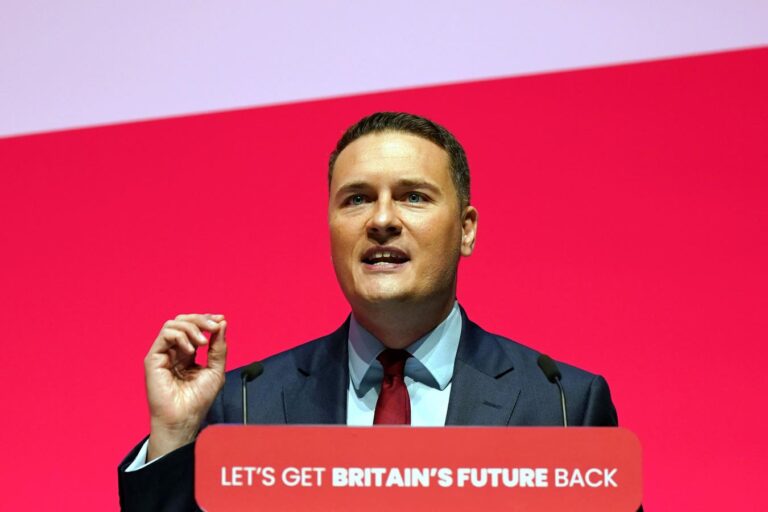Labour MP Wes Streeting speaks in Liverpool on 11 October 2023. … [+]
England will allocate a larger share of its health budget to primary care as one of the first major pledges of the new Labour government.
Wes Streeting, the new Health and Social Care Secretary, whose party won a landslide victory in last week’s UK general election, said during a visit to a London general practice on Monday that the government would “bring back the GP”.
Currently, primary care accounts for less than 10% of national health care spending, while acute hospital care accounts for almost 60%.
The remaining 30% will go towards mental health, community, emergency, dental and vision services, as well as local public health services and prescriptions.
While no specific figures were given in the announcement, making it easier to see a GP – and to be seen by the same doctor – was a key Labour election promise.
“Patients are finding it harder than ever to see their GP – they can’t get through the front door of the NHS and so they are unable to get the timely care they need,” Mr Streeting said in a statement.
“This is not surprising given that GPs and primary care receive a smaller proportion of NHS resources and I am committed to reversing that.”
Amanda Pritchard, chief executive of NHS England, who visited GP practices on Monday, said GP teams were the “backbone” of the health service but “they are under huge pressure and working incredibly hard to fit more appointments”.
She said the NHS was “looking forward to” working with the new Government to better support and transform primary care services.
Shifting resources to primary care will put pressure on funding for other areas of healthcare, but it is hoped that it will ultimately ease the strain on the healthcare system as a whole.
Still, hospital administrators, already facing tight budgets and having to cut clinical staff, may be hesitant to shift funds from acute care to primary care.
Acute hospitals are currently struggling to cope with high bed occupancy rates, which is having serious knock-on effects across the health service.
For example, slow discharges of vulnerable patients who require social care support are a major cause of long waiting times in emergency rooms and ambulances, and the Royal Society for Emergency Medicine estimates that the crisis is causing thousands of deaths each year.
“Properly funded primary care will reduce pressure across the NHS and support overworked colleagues in secondary care,” said Camilla Hawthorne, chair of the British College of General Practitioners.
Increasing the provision of non-acute care, such as family doctor services, can reduce demand for acute hospital beds and emergency medical services, for example.
Hawthorne argues it’s also better value for taxpayers, saying “an appointment with a GP is much more cost-effective than a trip to the emergency room.”
A number of measures, such as virtual wards, are already being introduced or expanded to provide community-based care to more patients.
But the problem is far from solved, and it will take time for many of the benefits of expanding primary care provision to trickle down to hospitals.


